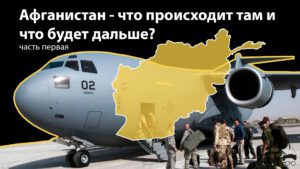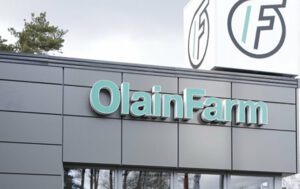
Energy Minister of Ukraine Herman Halushchenko and U.S. Secretary of Energy Jennifer Granholm have signed a joint statement on strategic dialogue in the field of energy and climate, Ukrainian President Volodymyr Zelensky said.
“A strategic dialogue in the field of energy and climate has been initiated between Ukraine and the United States. The corresponding joint statement was signed by Ukraine’s Minister of Energy Herman Halushchenko and U.S. Secretary of Energy Jennifer Granholm,” Zelensky wrote on Twitter on Tuesday.

Westinghouse will supply nine batches of fuel for Ukrainian NPPs in 2021, President of Westinghouse’s Europe, Middle East and Africa Operating Plant Services Business Unit Tarik Choho has said.
“In total, in 2021, we will deliver fuel for nine refuelings, and in 2022 it will be seven,” he said in an interview with Interfax-Ukraine.
According to him, for all the years of cooperation with National Nuclear Generating Company Energoatom Westinghouse has supplied 1,626 fuel assemblies for nuclear power plants to Ukraine.
Chokho recalled that Westinghouse fuel for VVER-1000 reactors is already in operation at six out of 15 nuclear reactors in Ukraine. “These are units Nos. 1,3,4,5 of Zaporizhia NPP, as well as units Nos. 2 and 3 of Yuzhnoukrinsk NPP. Moreover, five units out of six [units Nos. 1,3,5 of Zaporizhia NPP and No. 3 of Yuzhnoukrinsk NPP] are fully loaded with Westinghouse fuel,” he said.
In addition, starting in 2022, Westinghouse fuel for VVER-1000 reactors will also be used at unit No. 3 of Rivne NPP, and two years later Westinghouse will supply fuel for VVER-440 to unit No. 2 of this plant.

The Afghan authorities till the last did not believe in the withdrawal of the U.S. army from the country and considered all movements of American troops over the past six months to be military maneuvers, Mohammad Farajallah, an expert on the Near and Middle East, the editor-in-chief of the Ukraine in Arabic online portal, told the Experts Club YouTube channel.
“For some unknown reason, the Afghan leadership decided to reshuffle personnel in the army and appointed a person who had been undergoing long-term treatment in the UAE as the Minister of Defense,” the expert added.
Farajallah believes that due to these factors, the Afghan armed forces were in a deplorable state by the beginning of the large-scale offensive by the Taliban. In addition, according to the expert, the Afghan army is used to fighting according to the American model, and was not ready for the lack of massive air support and satellite intelligence.
“At the end of April, the U.S. military ceased serving Afghan aircraft and transmitting intelligence. They announced that they were beginning to withdraw their troops. The Afghan authorities, in turn, did not prepare (for the Taliban’s offensive) and did not understand the importance of the situation. Also, this situation damages the reputation of the CIA, which in its forecasts gave the Taliban at least six months to seize power,” the orientalist emphasized.
Another wrong decision of the Afghan authorities, according to the expert, was the concentration of military units in large cities. This led to the formation of a kind of besieged garrisons without supply lines, which rather quickly surrendered to the Taliban one after another.
The expert said the main factor behind the quick victory for the Taliban was the low morale of the Afghan army. The few pockets of resistance were brutally suppressed by the Taliban, but most of the army simply laid down their arms.
“The Taliban have worked with the heads of clans who have a huge impact on the local population, including soldiers of the Afghan army. When a tribal elder tells a local soldier to drop his weapon and go home, he has no choice but to obey, as tribal leaders have much more authority than inexperienced army commanders,” he noted.
Watch the first part of the program on the situation in Afghanistan here
You can subscribe to the Experts Club channel here.
United States President Joe Biden, during a meeting with Ukrainian President Volodymyr Zelensky, said the partnership between Kyiv and Washington will strengthen in the future.
“I am pleased to welcome President Zelensky to the Oval Office in the White House. During the celebration of the 30th anniversary of Ukraine’s independence, the partnership between our countries is stronger than ever and will become even stronger,” Biden said during talks with Zelensky, the video of which made public by the Dom television channel in Telegram.
He also said that Ukraine and the United States have common values and goals, in particular, regarding the provision of peace and stability in Europe.
“Ukraine and the United States have common values. We are unswervingly committed to our long-term goal for Europe: to make it whole, free and peaceful,” the U.S. President said.

In January-June 2021, the Latvian pharmaceutical concern Olainfarm increased sales of products in Ukraine by 24% compared to the same period in 2020, to EUR 6.313 million.
According to the company’s materials, the improvement of this indicator has been facilitated by the introduction of a new marketing model in Ukraine since the end of 2020.
In general, over the six months of 2021, the group’s sales reached EUR 66.671 million, which is almost the same as the level of sales for the same period in 2020.
The largest markets for Olainfarm Group were Latvia (30%), Russia (about 27%), Belarus (about 12%), and Ukraine (over 9%).
Olainfarm is the largest pharmaceutical company in Latvia and one of the largest pharmaceutical companies in the Baltic States. Its product portfolio includes over 60 finished dosage forms, 25 active pharmaceutical ingredients and over 20 chemical intermediates.
Subsidiaries are located in Ukraine, Lithuania, Turkey and Kyrgyzstan, and representative offices – in the Russian Federation, Belarus, Tajikistan, Albania, Mongolia, and Uzbekistan.

USAID Agriculture Growing Rural Opportunities (USAID Agro) and the National Association of Agricultural Advisory Services of Ukraine will create the online resource center “Best agricultural practices for micro, small and medium-sized enterprises (MSME)” to provide its participants with knowledge about modern agricultural technologies in a number of agricultural sectors.
USAID Agro wrote about the agreement signed on September 1 to create this online project on Facebook.
“The resource center will provide agricultural MSMEs with practical knowledge and an indicative base about modern agricultural technologies in Ukraine and the world that can be introduced in the horticultural sector, livestock, aquaculture, poultry (except for chickens), in the production of confectionery and craft products,” the report says.
The project will become a communication platform where successful farmers will share their achievements with their potential followers. For this, Internet technologies, social networks will be used, educational webinars, meetings, fairs and conferences will be held, the “Best agro-practices” bulletin will be published.
It is specified that state and local authorities, public organizations, associations, scientific organizations and agricultural journalists are invited to participate in the project.
The beneficiaries of the project will be farmers from all over Ukraine, in particular, the target areas of the USAID Agro project are Dnipropetrovsk, Zaporizhia, Mykolaiv, Odesa, Poltava, Kharkiv, Kherson, and Cherkasy regions.
“The resource center will give a new impetus to the development of agricultural consulting, in particular, for the cooperation of advisers with farmers, institutions of agricultural science and education, research and design institutes, associations,” the organization summed up.
The National Association of Agricultural Advisory Services of Ukraine is an association of agricultural advisers and advisory services promoting modern management and production technologies at the MSME level, as well as implementing a number of projects related to the application of modern approaches to agricultural production.